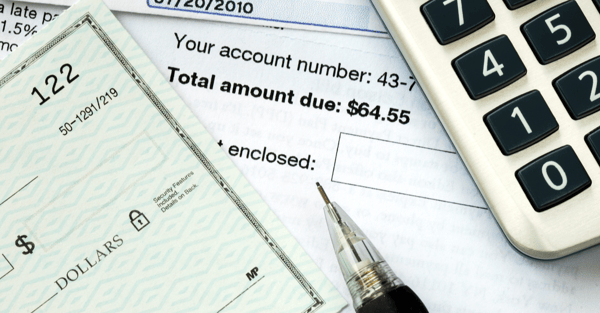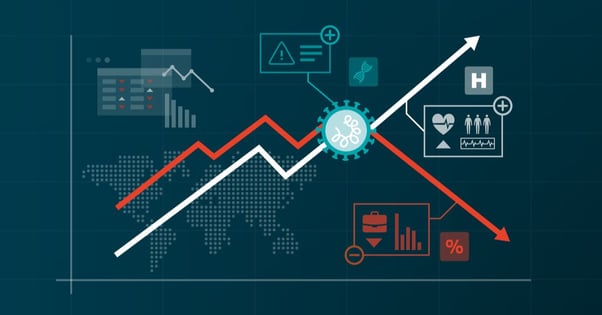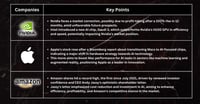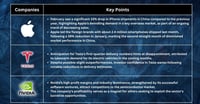Amidst the many fears surrounding the coronavirus pandemic, one thing sorely stands out – financial health. With the economy profoundly affected and many industries at a standstill, personal finances are taking a dive.
You’re probably stressing out over this crucial aspect of life. Whether you're still in the black or deep in the red, being in the know will help you stay calm and in control.
In this article, we will provide quick answers to your burning financial questions. We’ve also listed down reliable resources that will help you navigate through the labyrinth of finance-related ups and downs as well as learn more about the coronavirus.
1. What can I do with my stimulus check?
It depends on whether it's an added financial assistance or a small lifeline to you.
Either way, you should set aside a good portion of it to your emergency fund. Save some cash in a bank, so you'll have something to use when bad becomes worse.
If you’re lucky enough to continue working and getting paid during this crisis, put all your stimulus check in the bank.
If not, put away enough to tide you over until this pandemic is over.
In these uncertain times, the money you stash away is the one certain thing you can rely on to help you survive.
2. Should you defer payments or take the moratorium option?

Not if you still have the ability to pay your dues. If you don't experience or foresee financial stress, make repayments. By paying your bills as scheduled, you prevent future financial burden.
Because after the crisis is over, you'd still need to pay what you owe. What if you remain unemployed at the time when creditors no longer accept any excuse?
The moratorium option is designed to provide relief to people under extreme financial duress brought on by the pandemic. If you don't fall under this category, it's recommended that you pay up.
3. Should I withdraw cash?
Financial advisers say no. Remember that bank deposits are protected by insurance that is backed in full faith and credit by the government. If your bank closes due to the economic impact of the coronavirus, you will still get your deposits back up to the maximum deposit covered by insurance.
4. How can I protect my savings?
Job loss and a slowing economy may not be the most promising of combinations where the financial market is concerned, but it's not the end of the world. Experts suggest that you should not make any decisions out of fear when it comes to money just because the market is not doing so well.
So, rather than withdraw all your savings, keep it in the bank. Don't pull your money out just so you can have extra cash on hand.
Keep enough money in a savings account and invest the rest in a high-yield savings account. Every time you withdraw money, make sure to replenish it whenever possible.
With a well-protected savings account, you will have enough funds to survive the crisis.
5. Should I worry about paying credit card debt?
Only if you run out of options. It may be harder to get out of credit card payment now, but many credit card companies are willing to work with you.
- Take advantage of deferred payments if you really can't pay your dues.
- Ask your bank to lower the interest rate temporarily (or even permanently).
- Ask if you can skip a payment without incurring additional interest or penalties.
6. How can I cut down my expenses?

- Work out a plan with your banks and creditors so you won't need to funnel all your funds into bills and other dues.
- Negotiate to lower interest rates and payments for recurring bills.
- If you can't negotiate a better rate, switch providers. Choose a company that offers introductory rates and is willing to reduce monthly spending until you can recover from the financial impact of the coronavirus.
- Check your insurance coverage and realign it to save on repayments.
- Cancel unnecessary subscriptions and tamp down on discretionary spending.
Most importantly, spend relief packages wisely and remember to save some in your savings account.
7. My savings are dwindling and if the decline continues, how do I best manage my cash flow?
- Tap into short-term money you might have such as savings or certificates of deposit (CDs).
- Tap into accounts with the least tax viability, such as mutual funds, stocks or brokerage accounts.
- Consider short-term borrowing, such as borrowing against your equity.
- Avoid taking money out of a credit card and retirement fund.
8. How do I plan to build my savings back up when things get back to normal?
Ideally, you should not wait until things get back to normal. As early as now, start working on a long-term financial plan to build your savings, emergency funds, and investments.
Learn: How to trade and cash in during the coronavirus pandemic.
Understandably, you're worried and anxious about when you might go back to work or what the future will be like following the pandemic. But once you get rid of your anxiety and worries, you can better plan financially.
It's best that you work with a financial planner to get a better perspective on the market and your options.
Where to find reliable advice, information, and updates about the pandemic, finance, and the economy
MarketWatch on Coronavirus - Get the latest news on COVID-19 and its impact on business, finance, and the stock market.
Consumer Financial Protection Bureau - Consumer Financial Protection Bureau discusses how to protect your finances during the coronavirus crisis and includes links to other related resources, including food assistance and how to avoid scams.
Money - Find out where you can get free, personalised financial advice during this pandemic.
Debt.org - Get advice and help to understand and manage debt and other finance-related information you can use to survive this pandemic.
GoFundMe - Find out where to get and give financial assistance in these trying times.
GlobalGiving Coronavirus Relief Fund - Learn how you can help stop the coronavirus pandemic by providing support to the right organisations.
CNN - Check out a list of donation opportunities and tips where you can provide emotional, financial, and social support to those affected by the COVID-19 pandemic.
WHO Advice for the Public - Get credible and factual advice and the latest information on the COVID-19 outbreak, including myth-busting stories.
WHO Q&A on coronaviruses - Find quick answers to your burning questions about the pandemic from a reputable source.
MOH | Content you can use - Access infographics on topics related to coronavirus from the Ministry of Health Singapore.
Novel Coronavirus (Covid-19) Directory - Check out links to academic research on coronavirus designed to support research efforts.
Coronavirus Pandemic (COVID-19) - Statistics and Research - Access global data on the coronavirus pandemic and other relevant topics.
Continue protecting your finances and growing your wealth during a crisis with a recession-proof vehicle like Forex trading. Ready to build your income in the world's largest financial market? No better place to start than right here with us! Begin trading with Fullerton Markets today by opening an account:
You might also be interested in: How to Adjust Your Financial Plans to Deal with the Effects of COVID-19














